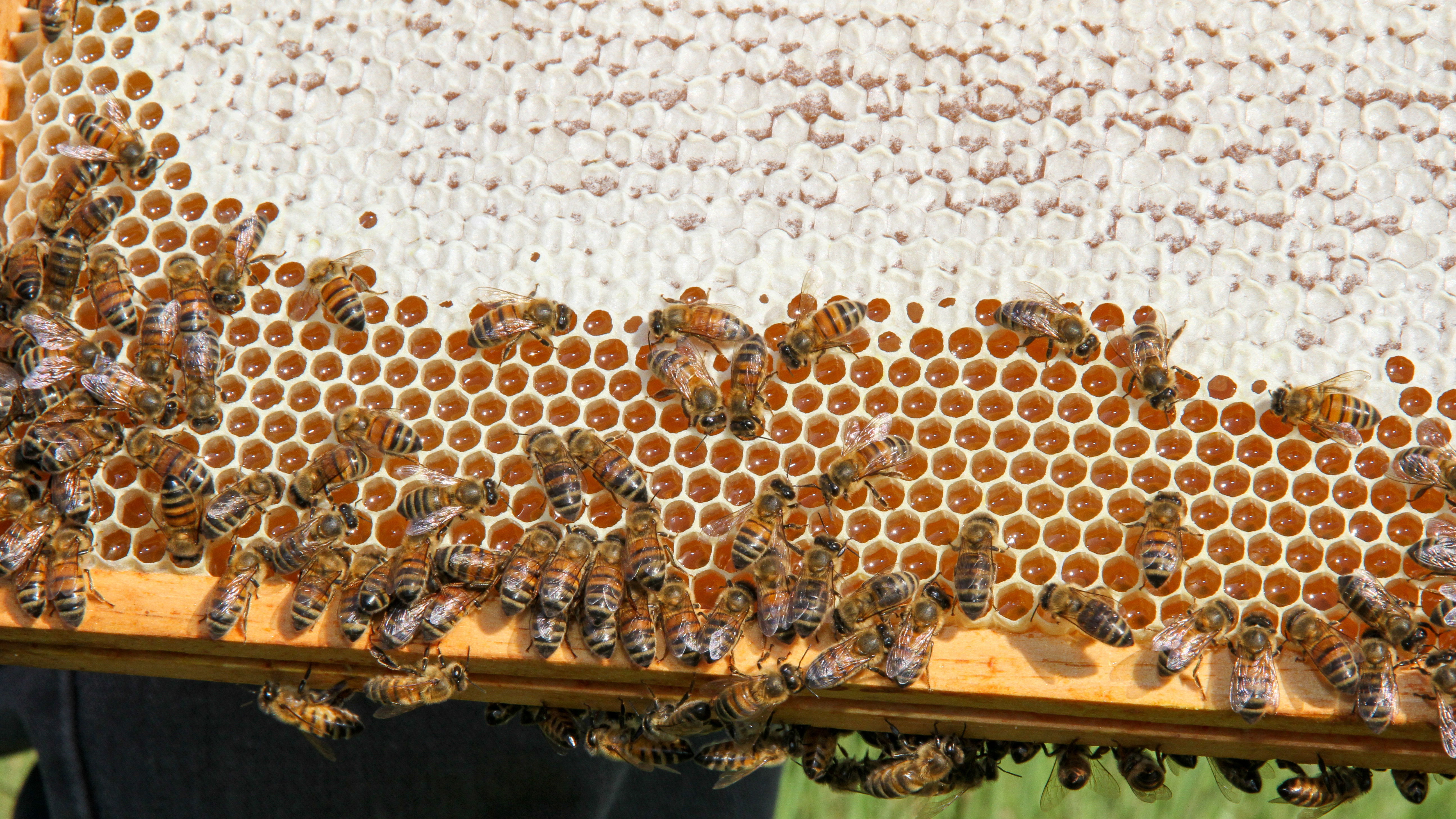
Pollinators

Issue Overview
Insect pollination is critical to agriculture, with more than 100 U.S. crops dependent on this delicate process, including fruits, vegetables and nuts. Economically, honey bees pollinate more than an estimated $18 billion of these crops each year and produce some $350 million worth of honey. Farmers contract with beekeepers who provide pollination services, moving bee colonies around the country by truck during the growing season. This ensures the bees are near crops that need pollination at the appropriate time.
Monarch Conservation Efforts
Farmers rely on pollinators and support their continued abundance through many activities.
For example, farmers and ranchers participate in conservation practices to help provide habitat for monarch butterflies across their life cycle through Natural Resources Conservation Service projects. The NRCS Working Lands for Wildlife Monarch landscape conservation initiative provides guidance and resources for farmers to establish and maintain habitat like milkweed in appropriate areas.
AFBF is part of the Farmers for Monarchs coalition, a group of national organizations representing farmers, ranchers and landowners; businesses working along the agricultural supply chain; researchers and academic institutions; federal and state entities; and conservation organizations. The coalition reaches a broad audience, sharing the benefits of pollinators to agriculture and ways to support their continued abundance.
In addition, voluntary efforts to support monarch habitat are found across industries and in partnership with the FWS. The Nationwide Candidate Conservation Agreement with Assurances for Monarch Butterfly (the CCAA) allows states, utilities, and others who manage lands associated with the energy and transportation sector to take measures such as changing the timing of vegetation management practices or targeted vegetation management, and in return, should the monarch be listed, they will not be required to take additional conservation measures. Under the CCAA, farmers who are the owners of land that have an energy or transportation easement may voluntarily “self-certify” their own conservation actions to receive protection against incidentally harming or harassing monarchs under the CCAA permit’s Landowner Buffer Provision. A landowner guide provides full details.
Safe Pesticide Use
Farmers also rely on various tools to control pests that can damage or ruin crops. Tools like pesticides have faced increased scrutiny in the last two decades. Thanks to advances in precision agriculture technology and seed innovation, farmers are using fewer and more targeted pesticides. The first goal is safety, and that’s why farmers follow the detailed pesticide guidance for how, when, where and how much to use.
Our Position
AFBF recognizes the ecological importance of pollinators and supports the responsible use of pesticides, and we will continue to be on the forefront of collaborative efforts to achieve both goals. We support the development of state-based pollinator plans and adherence to EPA pesticide labels in the application of pesticides. We also urge that any pollinator risk assessment related to crop protection products be based on field-relevant, sound scientific data and respects the diversity of agriculture across the U.S. Cooperative, constructive efforts among federal and state regulators, beekeepers, farmers and ranchers, coupled with ongoing research efforts, offer the most promising means of supporting continued pollinator abundance.